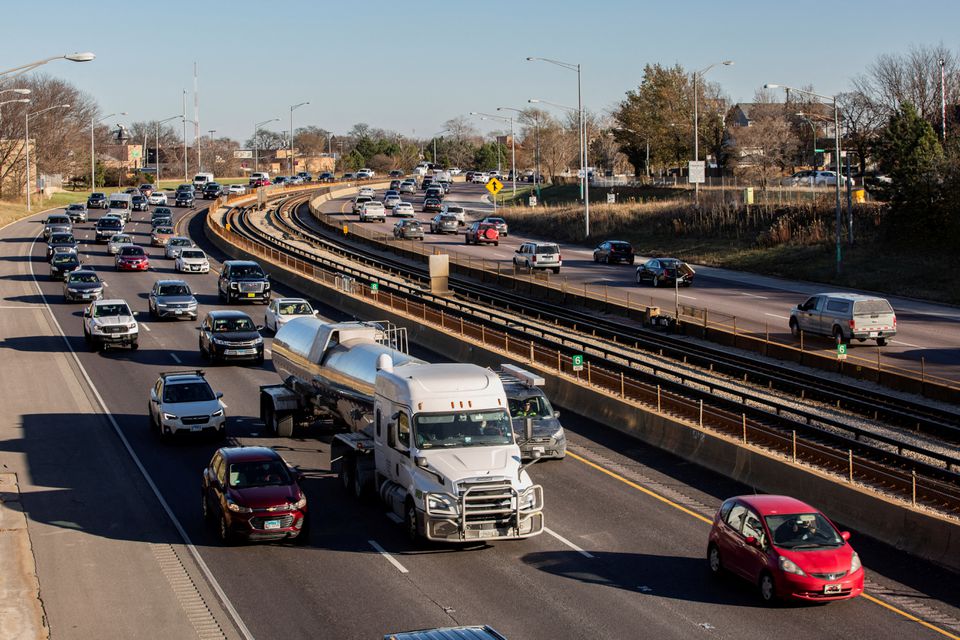WASHINGTON, Dec 12 (Reuters) – The U.S. new vehicle automotive fleet’s fuel efficiency was flat in the 2021 model year as automakers sold more sport utility vehicles and pickup trucks compared to cars, while the Detroit Three lagged behind foreign competitors and Tesla.
The U.S. Environmental Protection Agency said on Monday the fleetwide real-world average was 25.4 miles per gallon in the 2021 model year, the same as in 2020. The EPA estimates the 2022 fleetwide efficiency average will rise to 26.4 mpg.
Automakers are meeting rising vehicle emissions requirements in part through using credits earned in prior years or by buying excess credits from rivals.
Chrysler-parent Stellantis (STLA.MI) had the lowest fuel economy among all automakers at 21.3 mpg in 2021, while General Motors (GM.N) was 21.6 mpg and Ford Motor (F.N) at 22.9 mpg.
The three U.S. automakers had the lowest fleet-wide fuel economy of 14 major car companies, while EV manufacturer Tesla led all automakers with the equivalent of 123.9 mpg.
Subaru (9778.T) was second among automakers behind Tesla with a 28.8 mpg average followed by Kia (000270.KS) at 28.7 mpg and Nissan (7201.T) 28.6 mpg.
The report showed Stellantis led all automakers in buying emissions credits and acquired 102.6 million megagrams of credits in the 2021 model year, while Tesla (TSLA.O) sold 72 million. General Motors purchased 28.3 million credits and Mercedes Benz (MBGn.DE) while Honda (7267.T) sold 50.5 million credits and Toyota (7203.T) 38.9 million.
The EPA said new vehicle carbon dioxide average emissions in 2021 fell by 0.6% to a record low of 347 grams per mile.
In 2013, sedans and wagons accounted for 50% of U.S. sales but in 2021 fell to just 26% of sales. Truck-based SUVs reached a record 45% of U.S. sales and pickups increased to 16% of U.S. auto sales last year.
Stellantis said the data does “not reflect our current or future product plan” and noted it has announced a $35 billion investment in electrification and related software to bring 25 battery-electric vehicles to the U.S. market by 2030.
Dan Becker, director of the Center for Biological Diversity’s Safe Climate Transport Campaign said the auto industry is not achieving the 5% annual emissions reductions that regulators targeted in 2012.
“Automakers won’t slash pollution and improve gas mileage unless strong standards make them do so,” Becker said.
The EPA in March plans to propose even more stringent vehicle emissions rules through at least 2030 after last year finalizing new light-duty tailpipe emissions requirements through the 2026 model year that reversed then-President Donald Trump’s rollback of car pollution cuts.
Average new vehicle weight and horsepower both hit new records in 2021 with average vehicle weight hitting 4,289 pounds in 2021 as SUV and truck sales rise and both are forecast to hit new records in 2022.











